Today (Friday, June 19), the federal government officially announced the 2020-2021 recipients of the Vanier Canada Graduate Scholarships and Banting Postdoctoral Fellowships — its most prized awards for PhD students and postdoctoral fellows, respectively.
Five şÚÁĎłÔąĎÍřPhD students and two incoming postdoctoral fellows were among this year’s recipients, selected based on the potential impact of their research, academic excellence and leadership abilities.
“When I learned about the work of this year’s Vanier and Banting winners, I was struck by the importance and diversity of their work,” says Marty Leonard, dean of the Faculty of Graduate Studies at Dalhousie. “They are all set on making the world a better place — from tastier apples, to better sexual health, to improving the well-being of Indigenous children, to more efficient batteries. We are so lucky to have them at Dal.”
Vanier Scholarships are valued at $50,000 per year for three years during doctoral studies, while Banting Postdoctoral Fellowships are worth $70,000 per year for two years. The awards also allow faculty members to reinvest funding originally intended for the recipients to other students, potentially creating additional research opportunities.
Support for success
For PhD in Nursing student Leah Carrier, who earlier this year was named a Pierre Elliott Trudeau Foundation Scholar, receiving the Vanier Scholarship means that she will be following in the footsteps of her fellow Dal grad students she respects.
“I’ve looked up to several Vanier Scholars since beginning my graduate studies, particularly Keisha Jefferies and her groundbreaking work exploring the leadership experiences of Black nurses,” says Carrier who researches health outcomes in Indigenous communities. “It feels very exciting to be awarded a distinction earned by someone that I look up to and learn so much from.”
Incoming Banting Postdoctoral Fellow Sara Ross credits the şÚÁĎłÔąĎÍřlaw community for helping bring her to Halifax. “I have really valued the incredible support that the Schulich School of Law has provided every step along the way from the initial application through to beginning my research.”
Meet this year’s Vanier and Banting recipients and read about their research in their own words:
Vanier Scholars
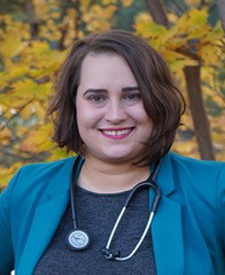 Leah Carrier (Nursing)
Leah Carrier (Nursing)
Improving the mental health and well-being of Indigenous children and youth
“Although Indigenous children and youth experience mental health disparities, Indigenous communities have inherent strengths and resiliency that promote health and wellbeing. We know that cultural activities and community connection can act as a protective buffer for mental health among Indigenous peoples, but the majority of the research in this area has been done with adults. More research is needed to understand how Indigenous youth conceptualize mental wellness and the role culture plays in promoting mental wellness with this group. My proposed research uses a “Two-Eyed Seeing” approach to address this gap and will explore the role of cultural connectedness and how culturally based interventions can be used to promote enhanced mental health for Indigenous children and youth.”
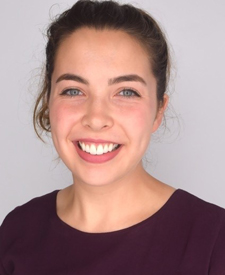 Rachel Ollivier (Nursing)
Rachel Ollivier (Nursing)
Understanding postpartum sexual health
“My research explores postpartum sexual health. Having a baby is a significant life event for most people and there can be many changes that accompany that, including to one’s sexuality and sexual health. Sexual health is a well-recognized component of overall health and wellbeing, yet it has not been comprehensively explored in the postpartum period. One reason for the gap in our understanding of postpartum sexual health is that sex is often considered to be a difficult, taboo or embarrassing topic to discuss. In addition, the published literature and research specific to postpartum sexual health has, for the most part, focused solely on physical symptoms and measures. Therefore, my research will aim to gain an in-depth understanding of how sexual health is experienced and defined by postpartum individuals so that we may better support their overall health and well-being.”
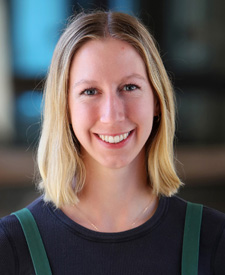 Sophie Watts (Plant, Food and Environmental Sciences)
Sophie Watts (Plant, Food and Environmental Sciences)
Creating sustainable, great tasting apples
“My research is focused on identifying genes that control traits in apples in order to breed apples that are tastier and more sustainable. I hope my research will help strengthen food security and allow us to adapt our agricultural systems to meet the challenges posed by climate change. My research aims to help apple breeders identify genes that they can target to breed apple varieties with improved, tastes, textures and sustainability. In turn, this will allow farmers to continue to produce high quality apples that can withstand hotter temperatures, pests and diseases, and are of course still tasty. By uncovering the connection between genes and traits I hope to help breeders and farmers produce sustainable and secure food.”
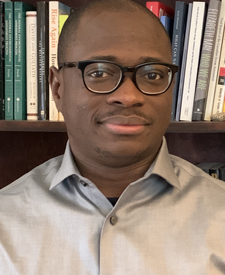 Adebayo Majekolagbe (Marine and Environmental Law Institute)
Adebayo Majekolagbe (Marine and Environmental Law Institute)
Easing the transition to a greener economy
“My research focuses on the design of a just transition impact assessment framework to facilitate the equitable and effective sustainability transition of fossil fuel dependent economies. Global climate discourse has largely been conducted as a pro-fossil and anti-fossil binary. Such binary is unhelpful and fossil fuel producing societies have become increasingly resistant to climate change mitigation policies and initiatives. With a framework, the human dimension and social effects of mitigation policies and projects can be assessed and alternative pathways which could meet mitigation goals without neglecting social concerns can be considered. This will potentially help ease the resistance of fossil fuel dependent economies to climate change mitigation.”
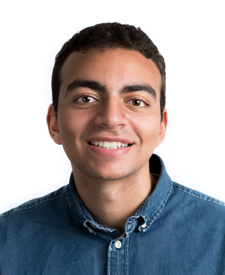 Ahmed Eldesoky (Chemistry)
Ahmed Eldesoky (Chemistry)
Addressing the challenges facing battery technology
“My research is dedicated to studying next-generation energy storage devices as an alternative to the conventional lithium-ion battery. State-of-the-art lithium-ion batteries struggle to meet the growing demands of governments and industry due to their relatively low energy density – the amount of energy stored per unit volume. Lithium metal batteries can meet the demand for high energy density storage devices but are very challenging to implement due to the hazards and limitations currently associated with them. Our work in this field will continue making significant contributions to understanding and addressing the fundamental challenges in lithium metal technology to make it a reality.”
Banting Postdoctoral Fellows
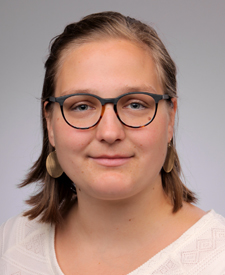 Dr. Susanne Benz, University of California San Diego (Civil and Resource Engineering)
Dr. Susanne Benz, University of California San Diego (Civil and Resource Engineering)
Assessing temperatures below the surface of the Earth
“My research quantifies climate change in the subsurface, particularly the increase of groundwater temperatures. Although the shallow subsurface is often 'out of sight and out of mind', changing temperatures have a significant impact on green energy supply in form of shallow geothermal systems; sustainable water resources in form of water quality and permafrost thaw; and the extinction of species within groundwater-dependent ecosystems. I want to develop an online tool displaying current and projected future subsurface temperatures for any location the user selects. This will not only be transformative for a multitude of scientific research areas such as hydrology, climatology, and environmental science, it will also be of practical use. Through this tool anyone with an internet connection will be able to identify if their well will be cold enough to not breed vector borne diseases or if shallow geothermal energy and heat recycling is a viable and affordable option for their home.”
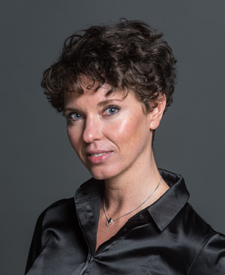 Dr. Sara Ross, Osgoode Hall Law School (Law)
Dr. Sara Ross, Osgoode Hall Law School (Law)
Preserving heritage spaces in Halifax
“My research focuses on the intersection of law and culture in the city. I will be using the Urban Legal Anthropology methodology that I have developed to investigate how an application of international legal mechanisms can be used to aid the equitable treatment and sustainable preservation of heritage spaces in Halifax. My past Urban Legal Anthropology projects have pinpointed some of the mechanics through which the unequal treatment of marginalized (sub)cultural communities occurs in the cities of Toronto and Vancouver. Through my research, I hope to provide a template for how civic and other levels of governments can better engage with and support transgressive and diverse (sub)cultural communities that often slip through the cracks of our city policies, and do so in a manner that better engages the applicable international standard setting frameworks set by UN-HABITAT and UNESCO more generally.”

